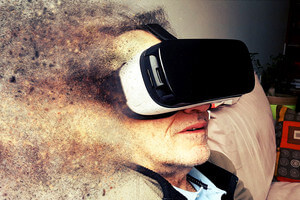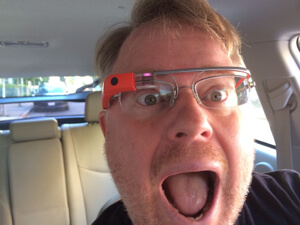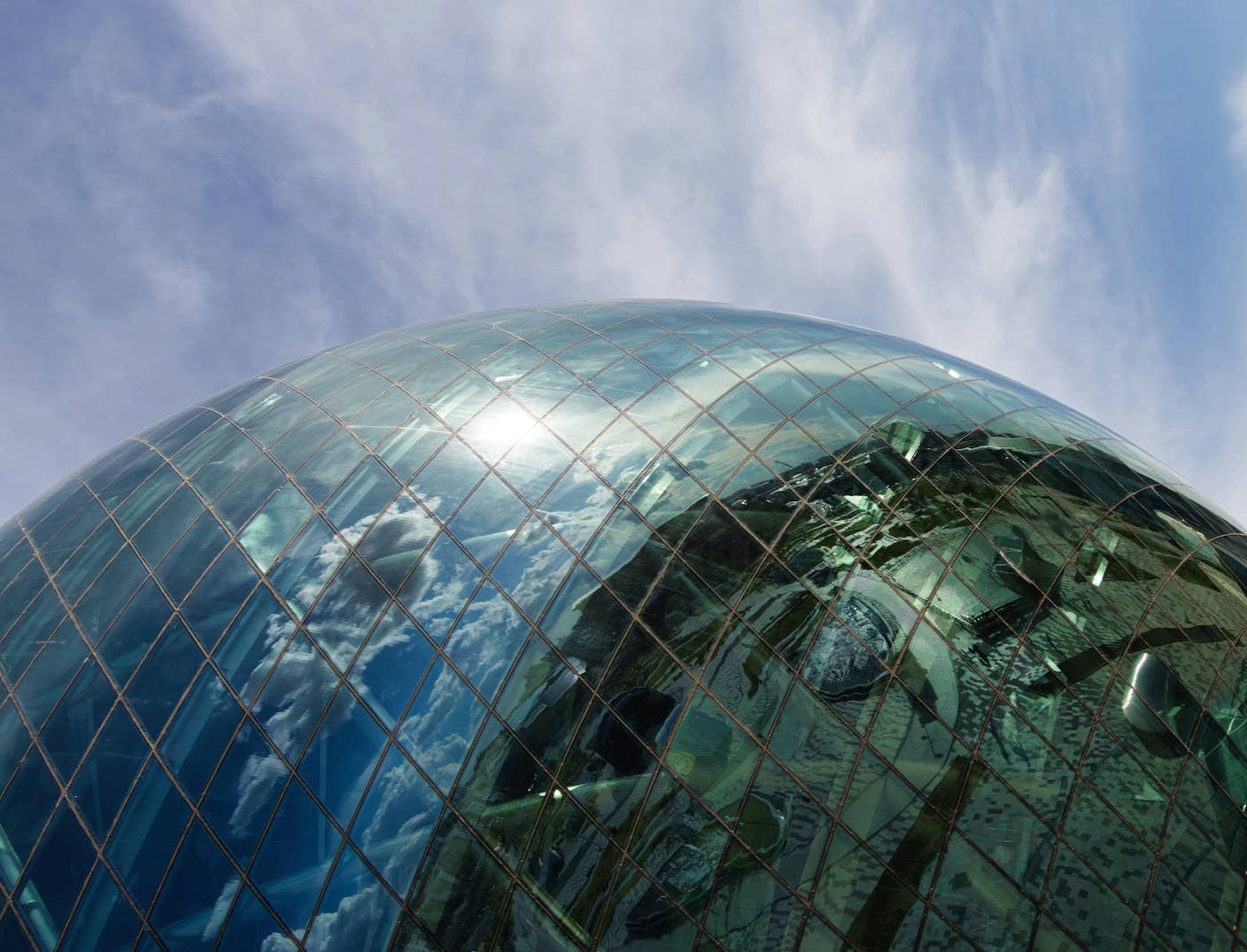Virtual Reality’s Moment of Truth Is Finally Here

Share
On March 28, 2016, three years, seven months and twenty six days will have passed since Oculus blew through their Kickstarter goal and reignited the dream of virtual reality for so many people around the world. I’ll never forget the excitement of that Kickstarter when dreamers from around the world pitched in to revive the hope and promise of magical glasses that could make the virtual into reality. There was a tangible sense we were on the edge of something huge.
But none of us had any idea what was coming.
We thought it was a big deal when Oculus secured nearly $100 million and Chris Dixon said, “I’ve seen a handful of technology demos in my life that made me feel like I was glimpsing into the future. The best ones were: the Apple II, the Macintosh, Netscape, Google, the iPhone, and—most recently—the Oculus Rift.”
And then Facebook bought Oculus for $2 billion and turned the whole world upside down. While there was an initial panic among the VR community, looking back now it’s clear that the Facebook acquisition was the best thing that could have possibly happened. Not only did it give Oculus the resources to make the best product possible, it was also the starting bell for the world’s top companies to begin seriously investing in VR. The floodgates were officially open.
So, we find ourselves here. All of the excitement, hype, dreams and work put in by tens of thousands of people around the world. 2016 is going to be an incredible year for VR. For those of us in the VR industry, this is the day we’ve been dreaming about for years if not decades.
But it’s also just a little bit terrifying. Because now, it’s time to turn those dreams into reality. It’s time to see what the world thinks of VR.
In the coming months, we’re going to see the once hazy future of virtual reality become clear. And there are a couple key indicators that can help us figure out just where this is all going.
 VR: Future of Gaming or Future of Everything?
VR: Future of Gaming or Future of Everything?
Obviously VR is going to be huge for video games—who hasn’t wanted to jump into their favorite digital world like it was real?
But there’s so much more we can do. Virtual reality is going to allow anyone to do almost anything, anywhere we can imagine, with anyone in the world. We’re going to be able to create immersive VR experiences which can thrill us, teach us, and allow us to more truly understand the lives of people around the world.
Will we create a virtual reality school that allows students from around the world to dive into a three-dimensional DNA structure and dynamically rewrite the rules of biology?
Can we build a virtual reality startup incubator in which scattered teams build rock-solid company culture and launch the next SpaceX?
How about a virtual reality documentary series which helps us understand the plight of refugees around the world? (That one actually happened already, and you should totally watch Clouds Over Sidra.)
Don’t get me wrong—games are awesome. But just using virtual reality for games would be like having a private jet and only using it to fly to Disneyland.
Prediction: For the first six months, gaming will be the major driver of high-end VR adoption. Most of the news we’ll see will be about emerging, non-gaming use cases, but broad adoption will take longer. Mobile VR will be focused on non-gaming experience such as 360 video.
 The 'Google Glass' Factor (AKA the Segway Syndrome AKA the Bluetooth Headset Blues)
The 'Google Glass' Factor (AKA the Segway Syndrome AKA the Bluetooth Headset Blues)
This is Google Glass, the once and future king of digital interaction.
Announced at Google I/O in 2012 with an incredible video showcasing the vision of the future, many prominent people preemptively declared it as a industry shaking game-changer.
Looking back, Glass wasn’t just a failure, it was an obvious failure that we should have seen coming (although there is a good case to be made that there were ways to make it work).
Glass has become a cautionary tale among futurists. It certainly fooled me. So why do we think that virtual reality will be any different? Will we be looking back in two years laughing about how goofy that Oculus Rift gizmo was?
I don’t think so. When it comes down to it, the Glass program failed for two main reasons.
It makes you look like a dork. Not only does Glass look incredibly goofy, it also had the minor drawback of making people feel like they were being filmed without their consent. Glass might have been cool at first, but pretty soon anyone wearing one was deemed a “Glasshole.” This was probably made worse by the fact that many early adopters and tech enthusiasts are sometimes…not the most tactful bunch.
There was no good reason to use it. Glass was marketed like an early precursor to augmented reality. It’s not. If you want the Google Glass experience but don’t want to pay $1500, just tape a smartwatch to some knockoff Ray Bans. Now you’ve got 90% of what Glass can do. It’s kind of neat, but outside of some industrial uses I can’t imagine ever wanting one.
Luckily for Oculus and other VR companies, neither of those should be a problem.
Virtual reality is meant to be used at home, mostly when you are by yourself. This is when your image matters least, and the risk of embarrassment is exponentially lower. I’d feel pretty weird walking around downtown with a VR headset on my head. But when I’m in my room grinding out seven hours of Rocket League, I already look pretty out of it. A VR headset won’t change much there—using VR won’t turn us into Glassholes. Now let’s hope that we in the VR community can avoid the type of embarrassing behavior that could land us there anyways.
Great virtual reality is a life changing experience. Earlier, I mentioned Clouds Over Sidra, the VR documentary about a Syrian refugee camp. What I didn’t mention was this was the first time I cried in VR. I was blown away by the emotion presented in the piece.
But it’s not just sadness. VR can make you feel the whole range of human emotion. Soaring through the solar system in Titans of Space inspired a sense of childlike wonder. Watching Henry touched me like seeing my first Pixar movie all over again. And Buddha Clubotron. Well, I’m not really sure how it made me feel. But I certainly won’t forget it. The fact is, great virtual reality beats just about every other medium. And we’re only getting started.
Let’s be clear—nothing is set in stone here. We might be soon see a rehashing of Google Glass and an inevitable failure (only clear in hindsight). VR isn’t perfect and there will be some sketchy or downright disturbing experiences created for it. And there will inevitably be the cynics who will try to snark VR into oblivion by showcasing the worst it has to offer.
But at the end of the day, tech is only as good as we make it. Yeah, the internet gave us 4Chan, but it also gave us Reddit’s Random Acts of Pizza.
Virtual reality is coming. It’s up to us to decide how we want to use it.
Prediction: The gaming community will eagerly accept VR as the next evolution of the medium. It will take longer to move into the mainstream, but experiences such as VR concerts, tourism, and documentaries will bring VR to a wider audience in an entertaining, non-threatening way.
 Race Car or Rocket Ship?
Race Car or Rocket Ship?
So, VR is here. And even if it’s not a smash success, there’s enough interest to keep it going. Between the enthusiastic adoption of gamers to the artistic, cinematic and educational uses, there’s a strong coalition of believers who really think we’ve got something special here.
Be Part of the Future
Sign up to receive top stories about groundbreaking technologies and visionary thinkers from SingularityHub.


But will it be a hard takeoff or a slower burn? Are we riding a rocket ship or a race car?
Market adoption of new technologies is notoriously tricky to forecast. The situation is made even more difficult by the complex and fragmented nature of the VR ecosystem. So, obviously I’m going to do the smart thing and try anyway.
To get a clear view of what’s coming, we can’t just make a forecast about VR in general. It’s important to understand the different forces at play, because each has their own role in the coming revolution.
Mobile VR
Key players: Samsung Gear VR, Google Cardboard
Cost: Low
Key use cases: 360 videos, immersive experiences, casual gaming
Best apps: Clouds Over Sidra, Matterport, Titans of Space
Thoughts: Mobile VR is going to be how most people experience VR for the first time. At first, the VR community laughed off mobile VR, but the Gear VR proved that you can do serious VR on a mobile device. Honestly, I’m still stunned at just how good we can make these experiences.
Google Cardboard is a whole different beast. It’s a decent gateway drug to VR, but I’ve never been able to spend more than five minutes at a time in it. That said, it’s certainly the most widespread VR headset, with distribution estimates in the millions. Google isn’t dumb though. Cardboard was their minimum viable concept for mobile VR. Watch out for a huge announcement from them at I/O this year.
High-End VR (Gaming PC Required)
Key players: Oculus Rift, HTC Vive
Cost: High
Best use cases: Hardcore gaming, creation, education, metaversing
Best apps: Eve Valkyrie, Job Simulator, Tilt Brush
Thoughts: The Rift and Vive are the gold standard. When paired with their motion capture controllers, each of these can deliver an experience that is quite simply out of this world. Unfortunately, the cost and complexity of a high-end gaming PC means they’re going to be limited to a smaller market in the short term.
The X Factor
Key player: Sony Playstation VR (PSVR)
Cost: Moderate
Best use cases: All I want from life is No Man’s Sky to announce VR support, Dreams
Thoughts: PSVR is right in the sweet spot to make a huge impact. It runs off the PS4 which has an installed base of 20 million gamers. While not quite as high end as the Rift or the Vive, the PSVR is poised to take the gaming community by storm. The interesting thing to watch will be whether it stays purely for gaming or begins to expand its potential.
We’ve got an incredible lineup of VR hardware coming this year. From the entry level mobile VR to a great gaming headset from Sony to the magical holodecks of the Vive and the Rift, we’re going to see a wide variety of market coverage and adoption.
That said, don’t expect VR to take over everything this year. Remember, we’re still in the early adopter stage. It’s going to be mostly gamers, enthusiasts and hobbyists for the first few months. Then, we’ll either enter a super hot takeoff phase or continue strong into next year.
Predictions: VR will gain wide adoption among a variety of subcultures but won’t be something everyone has or even is sure they want. That said, cultural awareness of VR will explode, and most people who are even a little tech savvy will have at least tried VR by the end of the year.
The Road Goes Ever On and On
The launch of consumer VR is a massive milestone. I think it’s going to go down in history with the Apple II, Netscape, and the iPhone. And like those technologies, we won’t see the large, societal shifting scale of VR for one to three years after launch.
Moving forward, it’s important to keep a keen eye on the future. It’s not just VR. Augmented reality (AR) is progressing at a much faster pace than expected. The Hololens, Meta AR, and Magic Leap are showing just how powerful the combination of the real and the virtual can be.
Ultimately, we’re moving towards a world where physical laws are going to be more of a suggestion; where technology isn’t flat, rectangular, and isolating. A future in which technology makes us more connected to ourselves, our friends, and the world at large.
Buckle up everyone, we’re in for one hell of a ride.
Image credit: Kārlis Dambrāns/Flickr CC-BY, Shutterstock.com, Robert Scoble/Flickr CC-BY, No Man's Sky
Jason Ganz is the CEO of Agora VR, a company dedicated to spreading big ideas in virtual reality. He's a tech optimist and startup junky who is thrilled to be living in the most exciting time in human history. You can get in touch with him at @jasnonaz and follow his work @agoraVR. For consulting and speaking engagements please contact eta.im.
Related Articles

AI Companies Are Betting Billions on AI Scaling Laws. Will Their Wager Pay Off?

Super Precise 3D Printer Uses a Mosquito’s Needle-Like Mouth as a Nozzle

Is the AI Bubble About to Burst? What to Watch for as the Markets Wobble
What we’re reading
